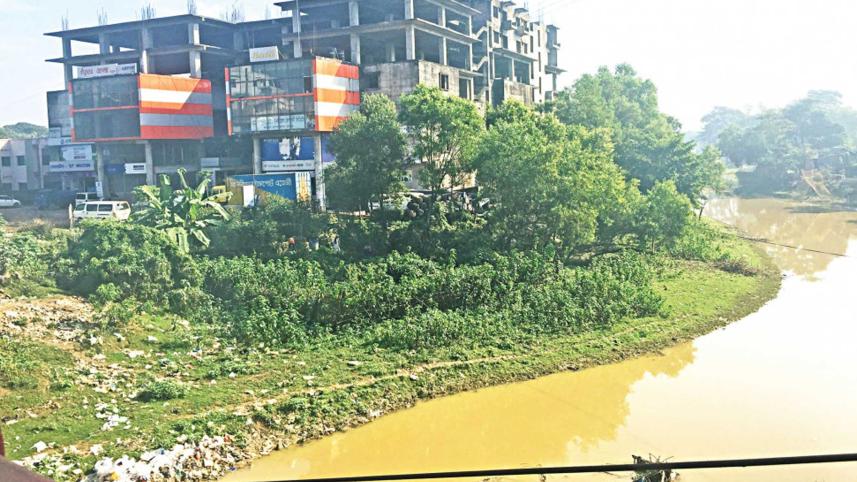Sonai: A river in distress

Yet another river in Bangladesh is fighting for its survival against our insatiable greed. This time it is the Sonai River that flows through Madhabpur upazila under Habiganj district. Only the other day, we had written about the slow death of the Khowai River in the same district, but it seems there is no authority to take effective steps to save these rivers. Despite many laws that exist to protect the rivers of the country, we do not see their enforcement. We have lost many such beautiful rivers in the past as no attempts to retrieve them were taken. The tale of the Sonai River is the same as that of the others.
This river has now shrunk to the size of a narrow canal as a result of indiscriminate encroachment and dumping of trash by the locals. It has actually turned into a narrow drain that carries hazardous rubbish to the nearby haors, polluting the waters in these large waterbodies. When Sonai was young and vibrant, it connected the local people with those of different nearby upazilas, such as Nasirnagar, Lakhai and Ajmiriganj. The river was the main route used by the local traders to reach different trade centres in the district. But this was back in time when the width of the river was about 250 metres—it has almost halved now—and the depth was more than five metres.
It is also alarming that some influential people are extracting sand from the riverbed on a regular basis, thus threatening its very existence. At the same time, because of the accumulated toxic waste in the water, marine life including freshwater fish have disappeared from the river. Residents also complain of numerous factories on the riverbanks contributing to severe air pollution, resulting in respiratory illnesses among people.
Reportedly, Bangladesh Poribesh Andolon (Bapa) repeatedly protested against the construction of a park on the riverbank, and the river commission has instructed the district administration to take immediate action against the proposed park owners. But no action has been taken so far. We agree with Bapa that such illegal and destructive activities occur when the role of the common people in decision-making, implementation and accountability is ignored.
The government officials of the upazila, however, have assured the people and the media that proper steps will be taken to evict the illegal occupants and widen the river. The results remain to be seen in the due course of time.
Throughout the country, big rivers are being deliberately reduced to canals through encroachment by powerful people where they construct houses, factories or shops right before the eyes of the authorities. Instead of occasional drives taken against the grabbers, concerted action needs to be taken to save the remaining rivers.



 For all latest news, follow The Daily Star's Google News channel.
For all latest news, follow The Daily Star's Google News channel.
Comments